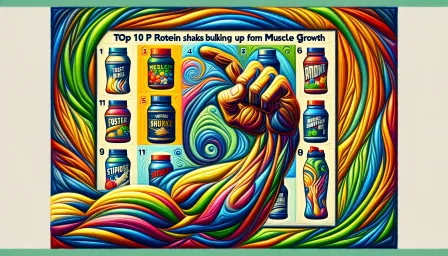Essential Tips for Getting Vitamin B12 on a Vegetarian Diet

Discover essential tips and information on how to ensure adequate Vitamin B12 intake while following a vegetarian diet. Learn about sources, supplements, and more.
Ensuring adequate Vitamin B12 intake is essential for anyone, but it can be particularly challenging for those on a vegetarian diet. Vitamin B12, also known as cobalamin, is crucial for many bodily functions, including nerve function, red blood cell formation, and DNA synthesis. This article provides you with essential tips on getting Vitamin B12 on a vegetarian diet, highlighting potential sources, the role of supplements, and other practical advice.
Understanding the Importance of Vitamin B12
Vitamin B12 is a water-soluble vitamin that plays a significant role in maintaining a healthy nervous system and producing blood cells. Deficiency in this vitamin can lead to severe health issues, such as anemia, fatigue, muscle weakness, and neurological problems. It is uniquely found in animal products, making it a critical area of focus for vegetarians.
Sources of Vitamin B12 for Vegetarians
Fortified Foods
Many vegetarians can meet their Vitamin B12 needs through fortified foods. These are foods that have Vitamin B12 added to them during processing. Common fortified foods include:
- Fortified breakfast cereals
- Fortified plant-based milk (such as soy, almond, or oat milk)
- Fortified nutritional yeast
- Fortified meat substitutes
Check the nutrition label to ensure the product contains Vitamin B12.
Dairy Products and Eggs
Lacto-ovo vegetarians can obtain Vitamin B12 from dairy products and eggs. These foods are rich in Vitamin B12 and include:
- Milk and dairy products (such as cheese and yogurt)
- Eggs
Including these in your diet can help you meet your daily Vitamin B12 requirements.
Supplements
If you find it difficult to obtain enough Vitamin B12 from fortified foods and animal-derived products, taking supplements can be an effective alternative. There are various forms available, including:
- Oral supplements (tablets, capsules, and lozenges)
- Vitamin B12 sprays
- Vitamin B12 injections (for those with significant deficiencies)
It's crucial to consult with a healthcare professional before starting any supplement regimen to determine the appropriate dosage for your needs.
Detecting and Preventing Vitamin B12 Deficiency
Symptoms of Vitamin B12 Deficiency
Recognizing the symptoms of Vitamin B12 deficiency early can help you address it before it leads to serious health problems. Common symptoms include:
- Fatigue and weakness
- Pale or jaundiced skin
- Heart palpitations and shortness of breath
- Nerve problems (such as numbness or tingling in your hands and feet)
- Balance issues
- Mental issues (such as memory loss, difficulty thinking, and mood changes)
Regular Monitoring
Maintaining regular check-ups with your healthcare provider and monitoring your Vitamin B12 levels through blood tests is an effective strategy to prevent deficiency. Your doctor can help you establish a well-rounded nutrients plan if you are at risk.
Dietary Planning
Planning your diet carefully is vital on a vegetarian diet. Ensure that your diet includes a variety of foods that contain or are fortified with Vitamin B12. Meal planning and keeping track of what you eat can help you stay on top of your nutritional needs.
Additional Strategies for Vegetarians
Consulting with a Nutritionist
Working with a nutritionist or dietitian who understands vegetarian diets can provide personalized advice and help optimize your diet. This professional support can guide you in selecting the best sources of Vitamin B12 and other nutrients necessary for a balanced diet.
Educating Yourself
Stay informed about Vitamin B12 and other nutrient requirements. Knowledge is power, and understanding the nutritional content of your food helps make informed decisions that benefit your health.
Conclusion
Achieving and maintaining optimal Vitamin B12 levels on a vegetarian diet doesn't have to be challenging if you know where to look. By incorporating fortified foods, dairy products, eggs, and supplements, and by monitoring your health regularly, you can meet your Vitamin B12 requirements effectively. Prioritize a well-rounded diet and consider consulting with healthcare providers to ensure you're nourishing your body adequately. Armed with the right information and strategies, you can maintain a healthy, balanced, and nutrient-rich vegetarian diet.



























